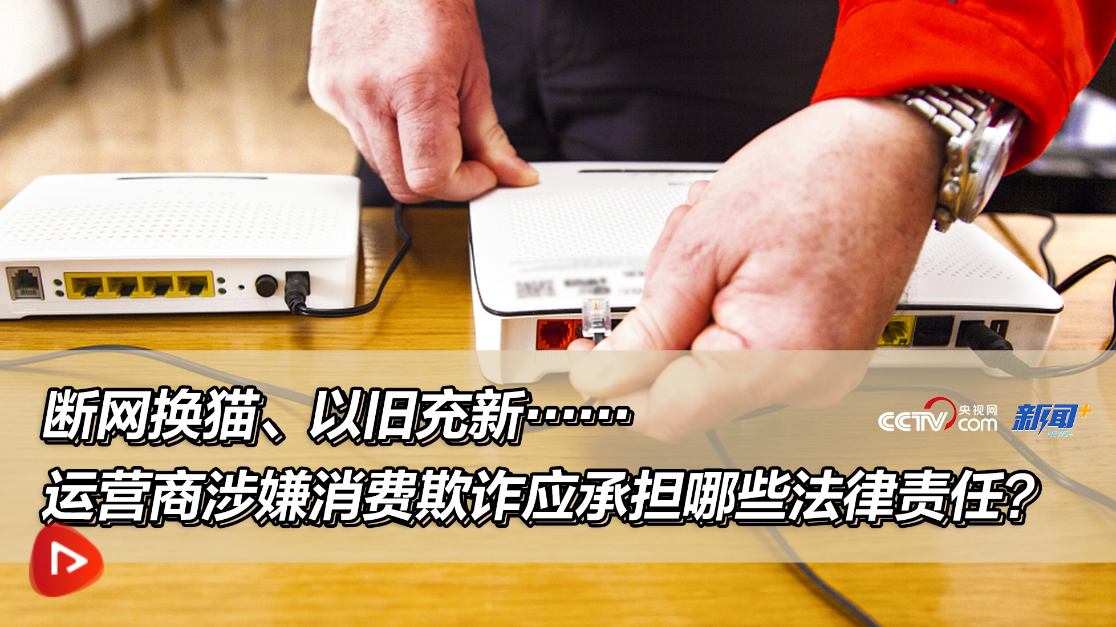Recently, Henan Zhoukou Unicom was exposed for forcing consumers to replace optical modems, sparking concern. According to reports, Unicom shut down users' broadband accounts through backend operations, preventing them from accessing the internet. Then, service personnel were sent to users' homes under the pretext of needing a new modem to resolve the issue, guiding consumers to replace undamaged goods.

Not only have long-time users encountered this situation, but when serving new users, the company installs previously used old modems as new ones. After users have used them for a while, they are informed that the old modems are incompatible and must be replaced.
In response, JAVY Law Firm partner Liu Xiufang accepted an interview with CCTV.com to provide expert analysis on such issues.
A: If an operator engages in behavior that induces consumer spending, what consumer rights might be infringed upon?
Liu Xiufang:
Operators may potentially infringe on consumers' rights to fair trade, autonomous choice, informed consent, and lawful use of property, among other civil rights.
Article 10 of the Consumer Rights Protection Law stipulates consumers' right to fair trade. If operators exploit their dominant position to guide consumers into re-consumption through deceptive means, it constitutes coercive trading behavior by the operator.
Furthermore, consumers have the right to compare, distinguish, and choose goods or services independently. If operators use deceptive means to mislead consumers into consumption, they also infringe to some extent on consumers' right to autonomous choice.
At the same time, consumers have the right to know the true situation of the goods they purchase or the services they receive, and they have the right to request operators to provide relevant information such as prices, origins, producers, uses, performances, specifications, grades, main ingredients, production dates, expiration dates, qualified inspection certificates, instructions for use, after-sales services, specifications, and fees. If operators conceal such information, it also infringes on consumers' right to be informed.
A: If an operator commits consumer fraud, what penalties might they face?
Liu Xiufang:
Operators may face civil liability, administrative penalties, and in severe cases, criminal liability.
According to Article 56 of the Consumer Rights Protection Law, for false or misleading advertising of goods or services, the industrial and commercial administrative departments or other relevant administrative departments may order rectification. Depending on the circumstances, they may issue a warning, confiscate illegal gains, and impose fines of one to ten times the illegal gains; if there are no illegal gains, fines of up to 500,000 yuan may be imposed. In severe cases, they may be ordered to suspend business for rectification, have their business license revoked, and in addition to penalties under laws and regulations, the penalties imposed should be recorded in their credit files and made public.
If the amount of illegal gains obtained by the operator reaches an extremely serious level, they may face criminal liability.


© Beijing JAVY Law Firm Beijing ICP Registration No. 18018264-1